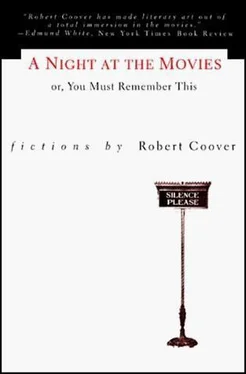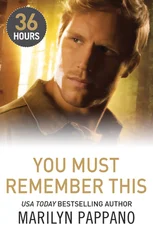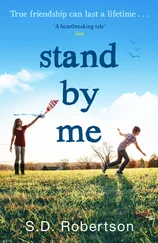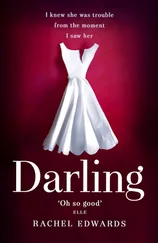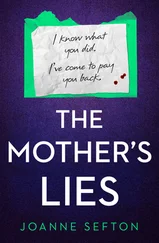This answer seems to please him. He knows how vulnerable he is, after all, it's the way he lives — his doors are open, his head is bare, his tuxedo jacket is snowy white — that's not important. What matters is that by such a reply a kind of destiny is being fulfilled. Sam has a song about it. "I told you this morning you'd come around," he says, curling his lips as if to advertise his appetite for punishment, "but this is a little ahead of schedule." She faces him squarely, broad-shouldered and narrow-hipped, a sash around her waist like a gun belt, something shiny in her tensed left hand. He raises both his own as if to show they are empty: "Well, won't you sit down?"
His offer, whether in mockery or no, releases her. Her shoulders dip in relief, her breasts; she sweeps forward (it is only a small purse she is carrying: a toothbrush perhaps, cosmetics, her hotel key), her face softening: "Richard!" He starts back in alarm, hands moving to his hips. "I had to see you!"
"So you use Richard again!" His snarling retreat throws up a barrier between them. She stops. He pushes his hands into his pockets as though to reach for the right riposte: "We're back in Paris!"
That probably wasn't it. Their song seems to be leaking into the room from somewhere out in the night, or perhaps it has been there all the time — Sam maybe, down in the darkened bar, sending out soft percussive warnings in the manner of his African race: "Think twice, boss. Hearts fulla passion, you c'n rely. Jealousy, boss, an' hate. Le's go fishin'. Sam."
"Please!" she begs, staring at him intently, but he remains unmoved:
"Your unexpected visit isn't connected by any chance with the letters of transit?" He ducks his head, his upper lip swelling with bitterness and hurt. "It seems as long as I have those letters, I'll never be lonely."
Yet, needless to say, he will always be lonely — in fact, this is the confession ("You can ask any price you want," she is saying) only half-concealed in his muttered subjoinder: Rick Blaine is a loner, born and bred. Pity him. There is this lingering, almost primal image of him, sitting alone at a chessboard in his white tuxedo, smoking contemplatively in the midst of a raucous conniving crowd, a crowd he has himself assembled about him. He taps a pawn, moves a white knight, fondles a tall black queen while a sardonic smile plays on his lips. He seems to be toying, self-mockingly, with Fate itself, as indifferent toward Rick Blaine (never mind that he says — as he does now, turning away from her — that "I'm the only cause I'm interested in
") as toward the rest of the world. It's all shit, so who cares?
Ilsa is staring off into space, a space that a moment ago Rick filled. She seems to be thinking something out. The negotiations are going badly; perhaps it is this she is worried about. He has just refused her offer of "any price," ignored her ultimatum ("You must giff me those letters!"), sneered at her husband's heroism, and scoffed at the very cause that first brought them together in Paris. How could he do that? And now he has abruptly turned his back on her (does he think it was just sex? what has happened to him since then?) and walked away toward the balcony door, meaning, apparently, to turn her out. She takes a deep breath, presses her lips together, and, clutching her tiny purse with both hands, wheels about to pursue him: "Richard!" This has worked before, it works again: he turns to face her new approach: "We luffed each other once
" Her voice catches in her throat, tears come to her eyes. She is beautiful there in the slatted shadows, her hair loosening around her ears, eyes glittering, throat bare and vulnerable in the open V-neck of her ruffled blouse. She's a good dresser. Even that little purse she squeezes: so like the other one, so lovely, hidden away. She shakes her head slightly in wistful appeal: "If those days meant
anything at all to you
"
"I wouldn't bring up Paris if I were you," he says stonily. "It's poor salesmanship."
She gasps ( she didn't bring it up: is he a madman?), tosses her head back: "Please! Please listen to me!" She closes her eyes, her lower lip pushed forward as though bruised. "If you knew what really happened, if you only knew the truth — !"
He stands over this display, impassive as a Moorish executioner (that's it! he's turning into one of these bloody Arabs, she thinks). "I wouldn't believe you, no matter what you told me," he says. In Ethiopia, after an attempt on the life of an Italian officer, he saw 1600 Ethiopians get rounded up one night and shot in reprisal. Many were friends of his. Or clients anyway. But somehow her deceit is worse. "You'd say anything now, to get what you want." Again he turns his back on her, strides away.
She stares at him in shocked silence, as though all that had happened eighteen months ago in Paris were flashing suddenly before her eyes, now made ugly by some terrible revelation. An exaggerated gasp escapes her like the breaking of wind: his head snaps up and he turns sharply to the right. She chases him, dogging his heels. "You want to feel sorry for yourself, don't you?" she cries and, surprised (he was just reaching for something on an ornamental table, the humidor perhaps), he turns back to her. "With so much at stake, all you can think off is your own feeling," she rails. Her lips are drawn back, her breathing labored, her eyes watering in anger and frustration. "One woman has hurt you, and you take your reffenge on the rest off the world!" She is choking, she can hardly speak. Her accent seems to have got worse. "You're a coward, und veakling, und — "
She gasps. What is she saying? He watches her, as though faintly amused. "No, Richard, I'm sorry!" Tears are flowing in earnest now: she's gone too far! This is the expression on her face. She's in a corner, struggling to get out. "I'm sorry, but — " She wipes the tears from her cheek, and calls once again on her husband, that great and courageous man whom they both admire, whom the whole world admires: "- you're our last hope! If you don't help us, Victor Laszlo will die in Casablanca!"
"What of it?" he says. He has been waiting for this opportunity. He plays with it now, stretching it out. He turns, reaches for a cigarette, his head haloed in the light from an arched doorway. "I'm gonna die in Casablanca. It's a good spot for it." This line is meant to be amusing, but Ilsa reacts with horror. Her eyes widen. She catches her breath, turns away. He lights up, pleased with himself, takes a practiced drag, blows smoke. "Now," he says, turning toward her, "if you'll — "
He pulls up short, squints: she has drawn a revolver on him. So much for toothbrushes and hotel keys. "All right. I tried to reason with you. I tried effrything. Now I want those letters." Distantly, a melodic line suggests a fight for love and glory, an ironic case of do or die. "Get them for me."
"I don't have to." He touches his jacket. "I got 'em right here."
"Put them on the table."
He smiles and shakes his head. "No." Smoke curls up from the cigarette he is holding at his side like the steam that enveloped the five o'clock train to Marseilles. Her eyes fill with tears. Even as she presses on ("For the last time
!"), she knows that "no" is final. There is, behind his ironic smile, a profound sadness, the fatalistic survivor's wistful acknowledgment that, in the end, the fundamental things apply. Time, going by, leaves nothing behind, not even moments like this. "If Laszlo and the cause mean so much," he says, taunting her with her own uncertainties, "you won't stop at anything
"
He seems almost to recede. The cigarette disappears, the smoke. His sorrow gives way to something not unlike eagerness. "All right, I'll make it easier for you," he says, and walks toward her. "Go ahead and shoot. You'll be doing me a favor."
Читать дальше
